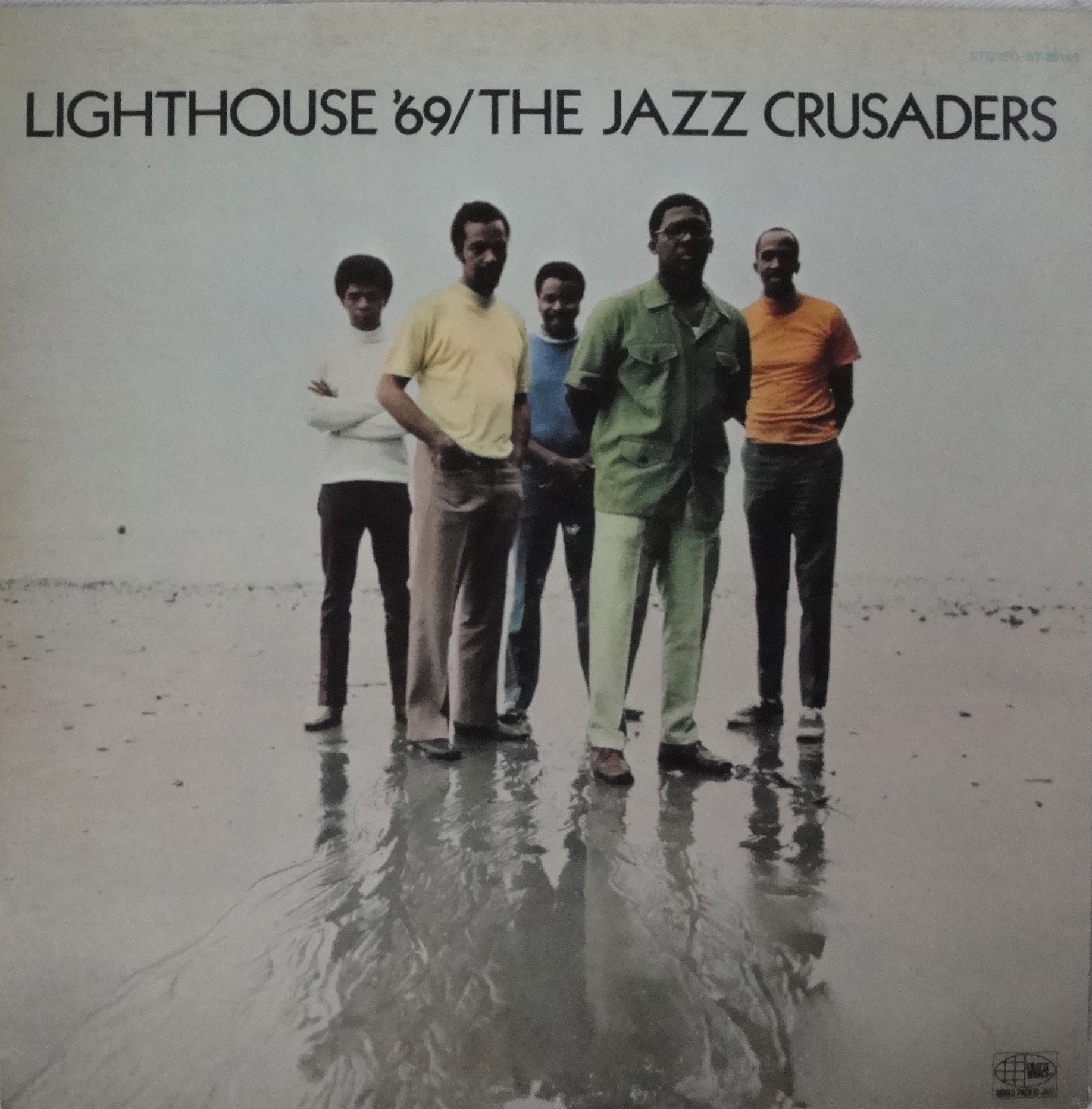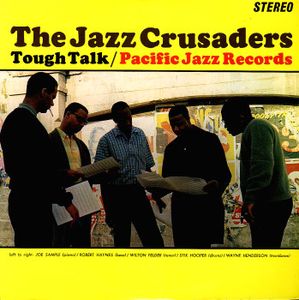The succesful fourth live recording of The Jazz Crusaders at The Lighthouse in Hermosa Beach, California (those of 1962, ’66 and ’68 also gained a considerable degree of popularity) is characterised by a warm sound and an exciting live atmosphere. And, above all, by two exhilarating covers of The Beatles’ Get Back and Tony Joe White’s Willie And Laura Mae Jones.
Personnel
Wilton Felder (tenor saxophone), Wayne Henderson (trombone), Joe Sample (piano, electric piano), Buster Williams (bass), Stix Hooper (drums)
Recorded
in 1969, live at The Lighthouse, Hermosa Beach, California
Released
as WP ST-20165 in 1969
Track listing
Side A:
Get Back
It’s Got To Be Real
Willie And Laura Mae Jones
Ruby P’Gonia
Side B:
It’s Your Thing
Inside The Outside
Reflections
Svenska Flicka
The Jazz Crusaders had the advantage of five members able to write on demand. (or four and a half, since Buster Williams was an occasional member) Their original compositions on Lighthouse ’69 are noteworthy despite their similarity of rhythm and melodic structure – with the exception of Buster Williams’ energetic Ruby P’Gonia. The solo’s from tenorist Wilton Felder and trombonist Wayne Henderson aren’t spectacular but solid and close to the blues. And close to bebop as well, as is evidenced by Wayne Henderson’s extended quote of Charlie Parker’s Now’s The Time (itself a variation of the traditional The Hucklebuck) in Inside The Outside.
What makes Lighthouse ’69 a classic album are two pop and soul covers. Their version of The Isley Brothers’ It’s Your Thing doesn’t belong to this group. It’s not the standout funk demonstration you would expect from a group of that high standard. But dig, if you will, The Jazz Crusaders’ intoxicating excursions into pop and country soul. The rhythm section informs both Get Back and Willie And Laura Mae Jones with an irresistable groove – heavier than the original beat – which is a big part of its attraction. Another part is pianist Joe Sample, who changes to electric piano for these tunes and whose supportive and solo statements are arresting.
Get Back contains short, tacky tenor and trombone solo’s that, considering the fact that there isn’t much chordal room to play with, intelligently play with the melody, and are embellished by more than one passionate squeal; it’s a first-class steamroller you wish wouldn’t eventually have to pull to a stop. The horn sections of Willie And Laura Mae Jones, a gritty backwater song if ever there was one, beg you to get your ass out of that shack and shake that thang.
Two bona fide soul jazz classics pretty much destined to make you shout for more, and then some.



